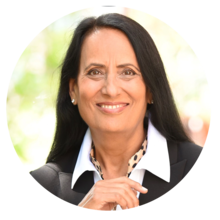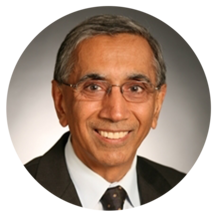About this Presentation
Innovation is a risky activity. We don't know whether our idea will work. We don't know whether the market will actually buy our idea or product. Our world stigmatizes failure despite the knowledge that we must be prepared to make mistakes otherwise nothing original will ever result! We have some great tools to help reduce risk and thus make it easier to try new ideas. The trick is to find ways to test our ideas rigorously before we have spent huge amounts of money, reputation and credibility. Tools that will help evaluate new ideas include the 6 questions about technology and the 4 quadrants of resistance to change (pot of gold, crutches, mermaid and crocodile). Eric Ries, in his book ‘The Lean Start-Up’ suggests a process for early new product evaluation that I believe integrates very well with TOC tools. I show how the TOC tools and ‘The Lean Start-Up’ can integrate synergistically.
What Will You Learn
To help you get the most value from this session, we’ve highlighted a few key points. These takeaways capture the main ideas and practical insights from the presentation, making it easier for you to review, reflect, and apply what you’ve learned.

Instructor(s)
Rudolf Burkhard
Rudolf Burkhard brings almost 50 years of varied business experience to his work. He has held finance, technical service, sales, marketing, supply chain, project and business management and management consulting positions at Du Pont’s European headquarters in Geneva. Except for a short period running a small company his experience comes from work in several Du Pont’s business units within the Textile Fibres and Electronics Departments. In 2001 he left Du Pont to focus on Theory of Constraints consulting, now with Alkyone Consulting. He is the author of the article “You Can’t Spot Serious Shareholder Value? Check your Paradigms.” that won the 1999 PricewaterhouseCoopers prize for the best article on ‘Can you Spot Serious Shareholder Value?’ He writes shorter and longer articles about ToC and other subjects he publishes on Linkedin and his Blog – www.supplychains.guru. Rudi has a dream – you can find it on the home page of his blog. It is: “My dream is to help clients & their employees achieve a harmonious & full life.

Ms Alka Wadhwa
Alka Wadhwa is an experienced consultant and process improvement expert with over 24 years of expertise in the Theory of Constraints (TOC), Lean Six Sigma, and organizational performance optimization. She has successfully led projects in healthcare, financial services, and manufacturing, driving significant improvements such as a 67% boost in hospital operations and a 140% increase in outpatient visits.
Previously, Alka Wadhwa spent 17+ years at GE Global Research Center, where she led initiatives to enhance various GE businesses through advanced technologies, process redesign, and system optimization. Founder of Better Solutions Consulting, LLC, she specializes in using TOC, Six Sigma, and data analytics to streamline operations and build high-performance teams.
Her work has earned her multiple accolades, including the Empire State Award of Excellence in healthcare.

Dr Gary Wadhwa
Dr. Gary Wadhwa is a Board Certified Oral & Maxillofacial Surgeon with extensive experience in the field. He completed his Oral & Maxillofacial Surgery training at Montefiore Hospital, Albert Einstein College of Medicine in Bronx, NY, and has served as an Attending at prestigious institutions like St. Peters Hospitals, Ellis Hospital, and Beth Israel Hospital in NY. With a career spanning over two decades, he was the former CEO and President of a group specialty practice in NY from 1994 to 2015. Dr. Wadhwa holds an MBA from UT at Knoxville, TN, and has undergone additional training in System Dynamics at MIT, Health System Management at Harvard Business School, and Entrepreneurship and healthcare innovations at Columbia Business School. Committed to expanding access to Oral & Maxillofacial Surgery care, he is currently engaged in a meaningful project to provide healthcare services to underserved populations in inner city and rural areas through non-profit Community Health Centers.
